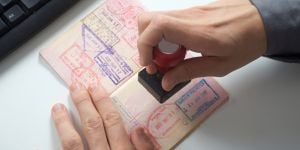Thank you for your response here and your insights into the tax system.
I talked to a tax advisor yesterday, and he advised me, which I will share below. Summary: I pay taxes in the US, and not that of the Netherlands for the first two years.
-------------
Only tax in the US for the first two years (maybe longer even)
Paragraph 1 of article 21 provides an exemption from tax in one State for an individual who visits that State for a period not exceeding two years for the purpose of teaching or engaging in research at a university, college, or other recognized educational institution in that State if the individual is a resident of the other Contracting State immediately before his visit begins.
The exemption applies to any remuneration for such teaching or research. The exemption from tax applies for a period not exceeding two years from the date he first visits the Contracting State (the "host State") for the purpose of teaching or engaging in research at a university, college, or other recognized educational institution there. If a professor or teacher remains in the host State for more than the specified two-year period, he may be subject to tax in that State, under its law, for the entire period of his presence. However, if the competent authorities so agree in a particular case, the exemption may apply for two years even if the individual's stay exceeds two years. It is anticipated that the competent authorities would agree to such an extension only in cases where the departure of the individual is delayed beyond the end of the two-year period because of unforeseen circumstances.
The host State exemption will apply if the teaching or research is carried on at an accredited university, college, school, or other recognized educational institution.
Only if the research is in the public interest
Paragraph 2 provides that Article 21 shall apply to income from research only if such research is undertaken by the individual in the public interest and not primarily for the benefit of some other private person or persons.
Some further general info
As stated in paragraph 3 of Article 22 (Students and Trainees), an individual may not claim the benefits of this Article if, during the immediately preceding period, he has claimed the benefits of
Article 22.
There is no provision in the U.S. or OECD Models dealing with professors and teachers. It is not standard U.S. treaty policy to provide benefits to visiting teachers by treaty. It is included in the Convention because a similar provision is found in the prior Convention. Under the prior Convention, however, the exemption applied for two years even if the individual's stay exceeded a two-year duration.
Under paragraph 2(b) of Article 24 (Basis of Taxation), the saving clause (paragraph 1 of Article 24) does not apply to the benefits conferred by one of the States under Article 21 if the recipient of the benefits is neither a citizen of that State, nor, in the case of the United States, is a lawful permanent resident (i.e., a "green card" holder). Thus, a Netherlands resident who visits the United States for two academic years as a professor and becomes a U.S. resident according to the Code, other than by virtue of acquiring a green card, would continue to be exempt from U.S. tax in accordance with this Article so long as he is not a U.S. citizen and does not acquire immigrant status in the United States. The saving clause does apply to U.S. citizens and immigrants.
What should we conclude?
I did see the 'to whom it may concern' letter written by Carlo Ratti and dated July 1, 2020, and he writes that Tom is seconded to Amsterdam to work on a research project, a joint project between MIT and the UVA, so Tom one needs to conclude that Tom is only subject to tax in the US for the first two years.
Anything else? Yes and being social securities
Under the social security treaty as concluded between the US and NL Tom remains insured in the US.
I need to check the relevant document that needs to be signed for by the authorities in the US and NL.
Anything else? Does Tom need to file an NL individual income tax return in the NL?













